What are the top 5 best SEO tools for small businesses?
SEO (Search Engine Optimization) is undoubtedly a vital component of any digital marketing strategy.
But for many small business owners, navigating the complexities that comes with optimizing their online presence can be challenging and overwhelming.
Luckily, you don’t have to do it alone!
There are plenty of online SEO tools available to help you boost your online presence and overall business growth.
Which brings me to the crucial question that likely brought you to this article: What are the top 5 best SEO tools for small businesses?
Read more: How Much Is SEO For Small Business?
Best SEO Tools For Small Business (My Top Picks)
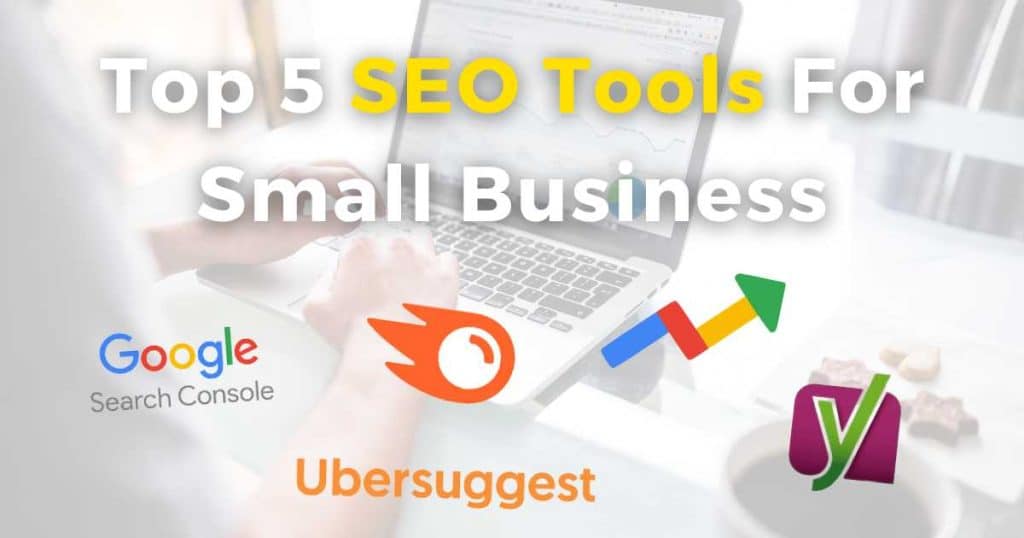
With the right SEO toolbox by your side, mastering the art of SEO doesn’t have to be scary or expensive!
In this comprehensive guide, I’ve compiled what I believe to be the best small business SEO tools on the market.
These tools are designed to maximize your digital presence, streamline your SEO efforts, and ensure you get the best return on investment without breaking the bank.
So, what are the top 5 best SEO Tools For Small Businesses?
- Google Search Console
- Google Trends
- SEMrush
- Ubersuggest
- Yoast SEO
Before we dive into the ins and outs of each platform, it’s important to understand what SEO is and why it’s essential for your small business.
Read more: Is It Possible To Do Your Own SEO?
What Is SEO For Small Business?
SEO essentially involves optimizing your website so it appears higher on search engine results pages (SERPs) like Google.
This marketing strategy involves incorporating a range of tactics and optimizations to boost organic traffic to your website from search engines like Google, Bing, and Yahoo.
What is SEO’s primary goal?
To fine-tune your site’s content, interface, and overall structure to align with constantly evolving search engine algorithms.
Key SEO tools include:
- In-depth keyword research and position tracking.
- On-page (content and element) optimization.
- Off-page (credibility and authority) optimization.
- Competitor analysis.
- Link-building strategies.
Basically, by adopting these SEO best practices, you’ll significantly elevate your online presence.
This can lead to more bookings, sales, calls, or whatever your online objections may be!
Top 5 Best SEO Tools For Small Business
1. Google Search Console
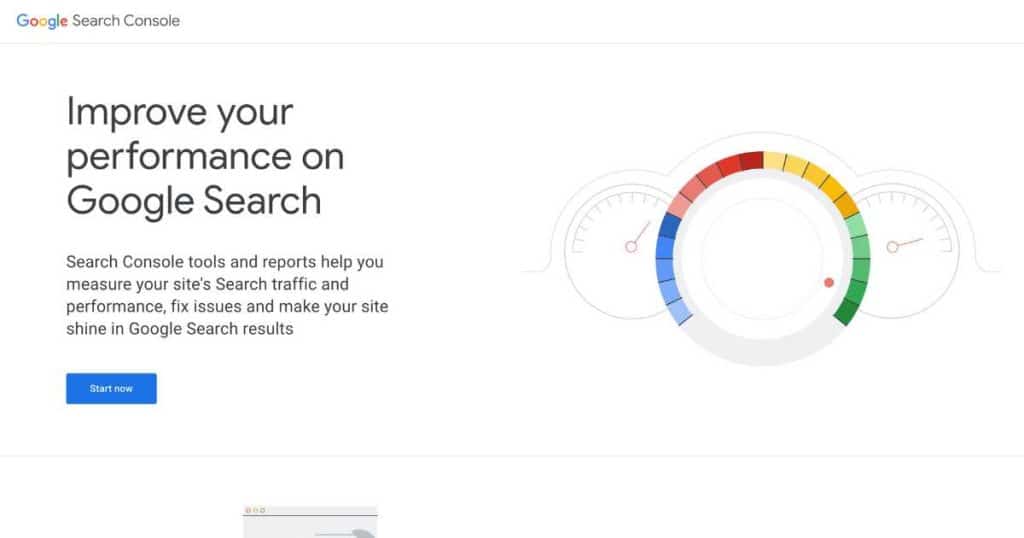
Google Search Console is a free (yet powerful) SEO tool offered by Google.
Essentially, Google Search Console allows you to easily view and monitor up-to-date data on how well your website is performing in Google Search results.
I use Google Search Console regularly for my business, and honestly, I believe it’s an essential tool for anyone looking to optimize their website for search engines!
With Google Search Console, you can:
- Easily view your website’s health and learn about specific issues affecting its visibility in search results.
- Submit new content for crawling (or remove content you don’t want it to be shown in search results), and monitor how your content is indexed.
- Analyze how often your site appears on Google, which search queries show your website, and how often potential website visitors type those queries.
- View and analyze keywords (search inquiries) for specific pages and their metrics.
- View all of your website’s internal and external links.
- Measure the performance of website traffic, including clicks, CTR, impressions, and more.
Google Search Console is incredibly valuable for small businesses, as it provides direct information from the source itself (Google) regarding your website’s performance.
This data helps with SEO, fix potential issues, and make informed decisions to improve your site’s online visibility.
Read my comprehensive guide here on how to use Google Search Console.
2. Google Trends
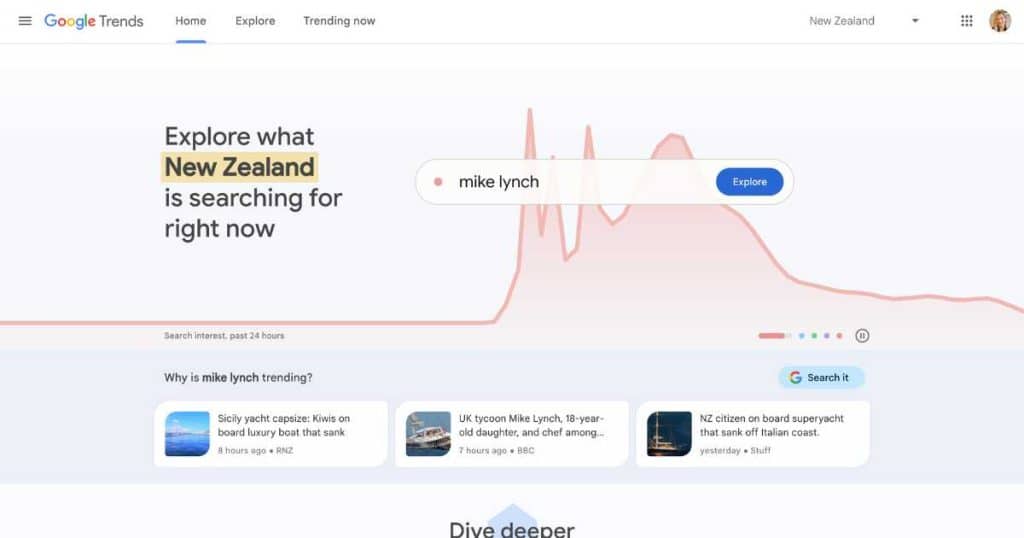
Google Trends is another free Google product that can help boost the visibility of your website.
With Google Trends, you can view how often people search in Google for specific keywords, subjects, and phrases.
You also have the ability to customize the period of time, geographical location, and category to understand specific trends.
The platform will then visually display those data results in a graph format.
Notable features of Google Trends include:
- Showing what is currently popular or ‘trending’ on the web, reflecting real-time data on trending topics across different regions.
- The ability to show search interest over time, which is crucial for understanding seasonal or ever-evolving trends and topics.
- Geographical searches.
- Multiple query comparison (up to five search topics).
- Information on related topics and searches to help with market research, correlated trends, upcoming trends.
- Easily exportable data through a CSV file (useful for in-depth analysis).
Google Trends is hands down the best SEO tool for understanding how and why trends may capture audiences globally.
Plus, it can assist with your own content creation, market research, and competitive analysis.
I personally use Google Trends to search for topic ideas for my blog website and YouTube channel.
If you’re a marketer, researcher, or small business owner trying to understand search behaviors over time, I highly recommend using Google Trends!
Read more: How To Use Google Trends.
3. SEMrush
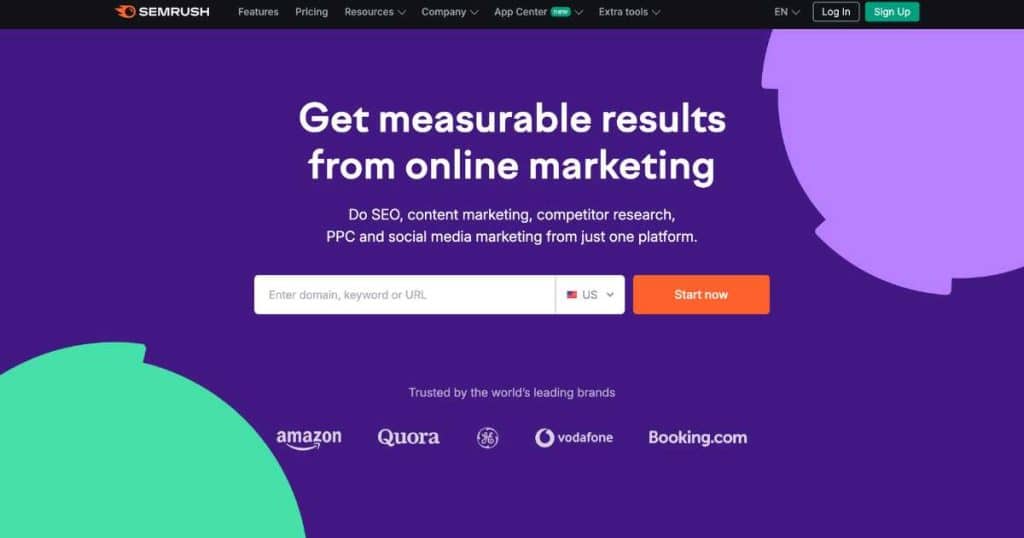
SEMrush is a versatile, premium digital marketing toolkit packed with features to enhance your business’s online visibility.
This comprehensive business suite is not just another average SEO tool–it’s so much more than that.
Sure, you can perform keyword analysis, manage search engine rankings, analyze competitor strategies, and view potential backlink opportunities.
But that’s not all! SEMrush also allows you to:
- Manage social media platforms.
- Develop content marketing strategies.
- Oversee pay-per-click (PPC) campaigns.
Despite its wide range of features, SEMrush is super easy to use, making it desirable for beginners serious about upping their SEO game.
I use these seven key features of SEMrush weekly for myself and my clients:
- Keyword Magic Tool: For keyword research.
- Keyword Overview: To gain deeper insights about my selected keywords.
- Keyword Manager: To organize and manage my keyword strategy.
- Position Tracking: For tracking primary keywords that my site is ranking for.
- Domain Overview: To view competitors’ keyword strategies and overall site performance.
- Backlinks: To uncover new backlink opportunities to enhance authority.
- Site Audit: For a comprehensive insight into my own website’s health.
Read more about these tools here.
SEMrush is a premium SEO tool, with plans ranging from $119.95-$449.95 per month.
But honestly, I believe SEMrush is certainly worth the investment for any small business owner!
Want to know more? Read my ultimate SEMrush review here.
4. Ubersuggest
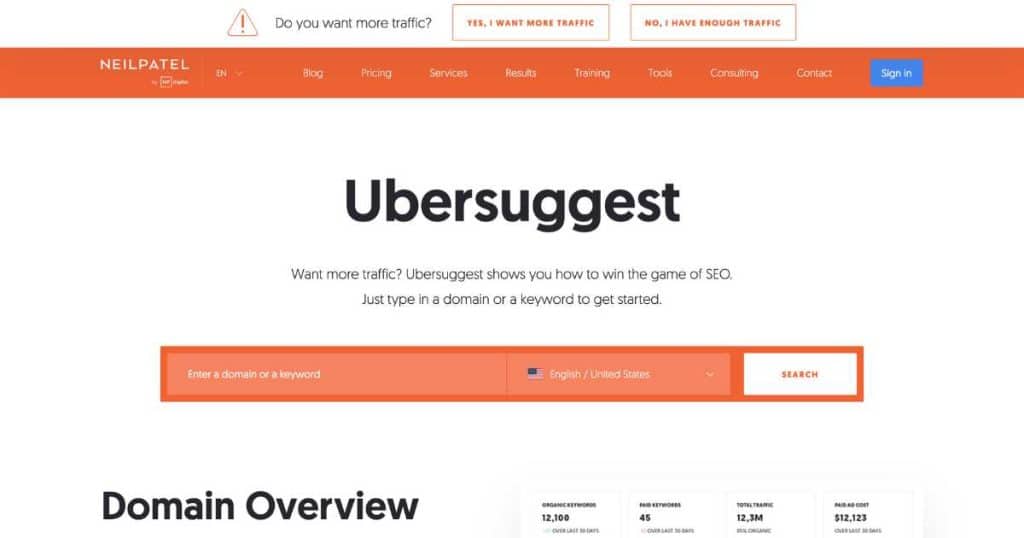
Ubersuggest is a free and paid keyword research and SEO tool developed by digital marketing expert Neil Patel.
The tool was designed as a lightweight solution for content creators and small teams looking to enhance their SEO strategies and overall online presence.
Ubersuggest boats a user-friendly interface and simple niche features such as:
- Domain overview and analysis.
- Competitor analysis.
- Keyword generator, suggestions, and trends.
- Traffic overview.
- Website health and issue alerts.
- Backlink data.
- Traffic overview.
The software does offer a basic free version.
However, Ubersuggest’s paid plans (from $49-99 per month) promise comprehensive capabilities and resources at a fraction of the cost of similar tools.
Ubersuggest is sort of like a stripped-back version of SEMrush (without the social media management, PPC campaign, and in-depth content marketing strategy capabilities).
So, if you’re primarily focused on identifying keywords and understanding your competition but don’t want to fork out hundreds of dollars, Ubersuggest is an excellent choice!
I suggest Ubersuggest for small businesses just getting started with SEO.
Read more: Ubersuggest vs SEMrush.
5. Yoast SEO
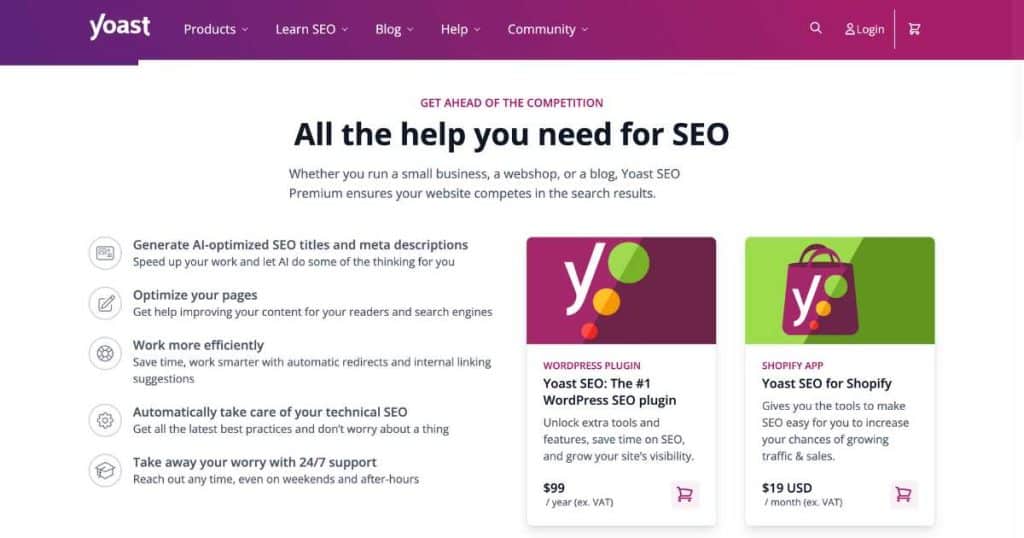
Calling all WordPress users! Yoast SEO is an SEO plugin designed to help WordPress website owners optimize their content for search engines.
Yoast SEO essentially offers website optimization suggestions and strategies so you can achieve higher rankings (and therefore attract more organic traffic) in search engines.
And with a suite of tools aimed to simplify the SEO process, Yoast SEO ensures your website’s visibility is improved across search engines such as Google, Bing, and Yahoo.
Key Yoast SEO features include:
- Real-time feedback on keywords, meta descriptions, readability, and other SEO elements within your website to ensure your content is fully optimized.
- Suggestions on how to make your content more accessible, user-friendly, and engaging for potential visitors.
- Keyword and duplicate content management.
- XML sitemap generation so search engines can easily index and crawl your website content.
- Identifying the most frequently used words and phrases within your content to ensure they match your chosen keywords.
- Social share preview.
- Redirect manager to help upkeep working links between pages.
Yoast SEO is super easy to use, which helps relieve some of the complexities that beginners face when managing a WordPress website.
The software offers a free and premium version, with the premium version offering advanced features like AI-powered suggestions, multiple keyword variants, and 24/7 support.
Plus, the good news is that you can also enhance the SEO of your Shopify store using Yoast SEO, thanks to the addition of the dedicated Yoast SEO Shopify app!
If your website is built and managed with WordPress, Yoast SEO is undoubtedly the best SEO tool for your small business.
Read more: How To Use Yoast SEO.
Which SEO Tool Is Best For You?
Okay, so with all that said, which SEO is best for your small business?
Well, truthfully, each of the tools mentioned above serves a somewhat different purpose within the realm of SEO.
Google Search Console is the best SEO tool for teams looking for a straightforward way to manage their site’s organic performance, specifically regarding Google Search results.
Google Trends can help business owners understand current and upcoming search query trends and topics to curate more targeted content strategies.
SEMrush is the most comprehensive SEO and digital marketing suite on the list.
This software offers dynamic features for all types of teams looking for an all-inclusive suite for deep SEO analysis and competitive intelligence.
Ubersuggest is the perfect SEO tool for beginners or small businesses on a budget after an easy-to-use tool to improve their site’s SEO performance.
And Yoast SEO is the best overall SEO tool for WordPress websites.
Ultimately, you might find the best approach is to use a combination of these tools!
Personally, I use SEMrush, Google Search Console, Google Trends and Yoast SEO to cover all aspects of my SEO and content strategy effectively.
Stews Final Thoughts
And that is it on this blog discussing my top 5 best SEO tools for small businesses!
It’s important to note that engaging in SEO tactics is essential if you’re serious about growing your small business.
However, leveraging the right tools to cut through the noise and reach your target audience is crucial.
And the five SEO tools I’ve mentioned—Google Search Console, Google Trends, SEMrush, Ubersuggest, and Yoast SEO—each bring something unique to the table.
Whether you want to gain deep insights into your website’s performance, understand the latest trends, or simply climb the search engine ranking ladder, there’s a tool for you!
By integrating these solutions into your digital marketing strategy, you’ll enhance online visibility, engage more with your audience, and ultimately drive business growth.
And remember, at the end of the day, the key to SEO success is not just about the tools you use but how you use them.
I hope you’ve found this article useful! Thanks for reading.

